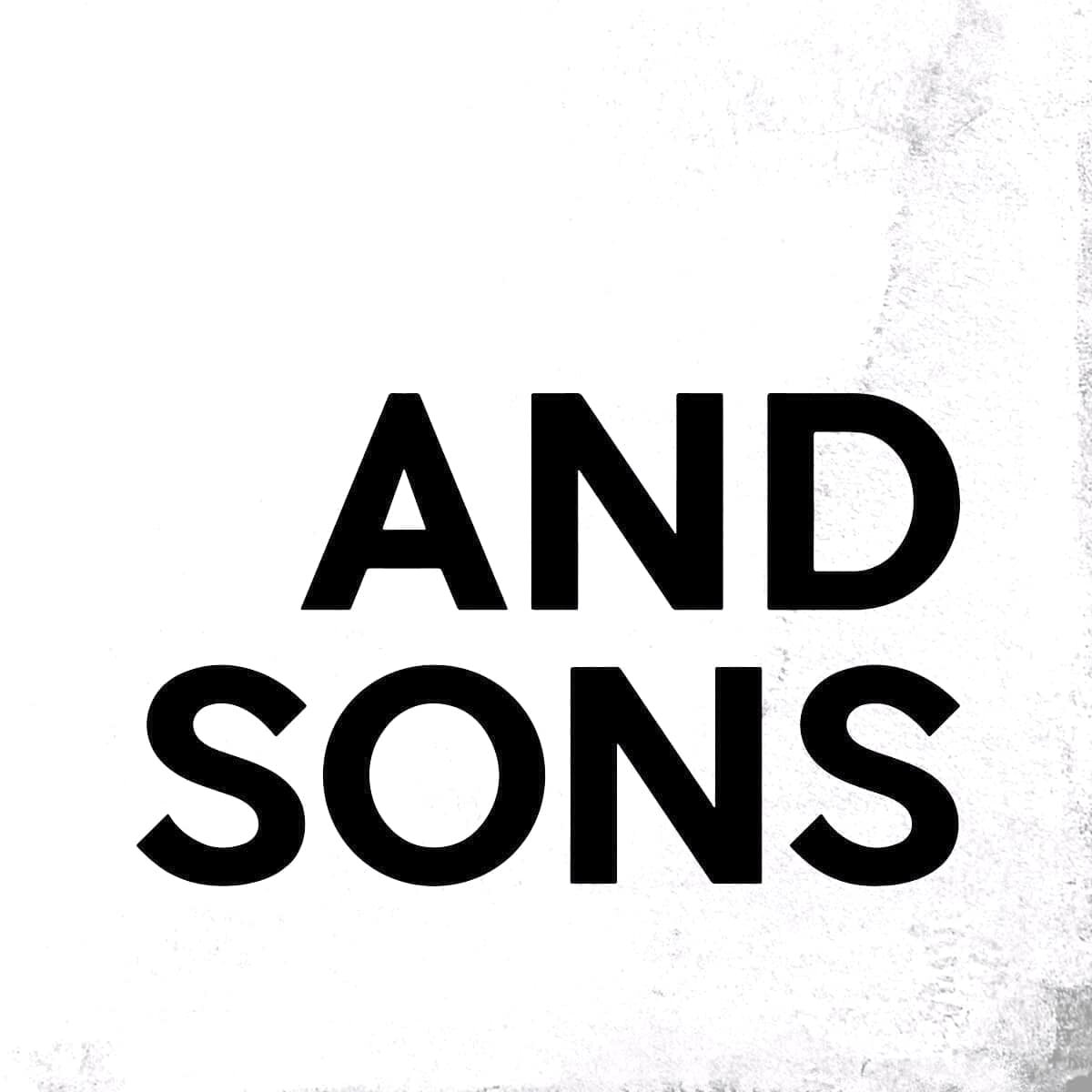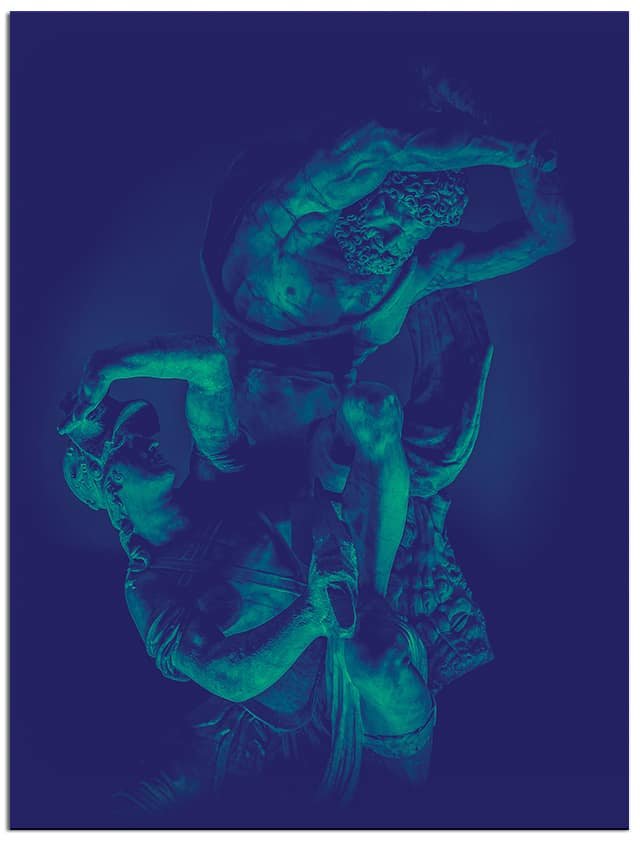Sex, the Soul, Addiction, and Longing for God
Interview with Michael John Cusick
This is an edited version of And Sons Podcast Episode #44 that originally aired on Feb. 20, 2018. - Ed.
Sam: This [interview] is about sex, sexuality, identity, addiction, and reframing desire, and some root causes under all of that. Truthfully, I was hesitant to step into this because there’s some language that the church uses and some messages that the church typically offers that aren’t very helpful. This is not that.
MJC: Per our contract, the title will be “How To Stop Masturbating In Three Easy Steps.”
Sam: That’s a perfect segue to the first thing that I want to ask you, relative to masturbating in three easy steps. You’ve worked in the area of addressing sexuality, restoring the human soul, issues of deep brokenness for a long time. If you could point to core assumptions that are damaging to men who are looking to take initiative and restore their own sexuality, what would you say?
MJC: First, I honor and support any man who’s taking any initiative with his sexuality because we know that all sexuality is broken. It’s not just people that are “addicted” to sex, or porn, or people that have sexual trauma; all sexuality is broken. And to make movement toward that is really an honorable and strong thing. However, most young guys, when speaking about sexuality, are expecting one of four things. Number one, get accountability. But accountability has become almost like this new spiritual discipline that ultimately fails because we’re self-deceptive. We deceive ourselves, and then we deceive others, and therefore accountability doesn’t work because we lie. And I talk about, in my book, “Surfing for God,” three levels of accountability; two are harmful, one is helpful.
Most guys experience cop accountability. And that’s this idea that I want to get a hold of my compulsive behavior, so I’m going to set up a relationship where you’re the cop, and you’ve got your ticket book. And if I speed in the zones that tell me what the limits are, then you’re going to write me a ticket. And usually that looks like shame.
And that’s a horrible way to be motivated in the Christian life. It doesn’t foster love, intimacy, or spiritual rest. And it leads to hiding and hiddenness in performance. So cop accountability only should happen in the most extreme conditions like when a guy is sleeping with somebody else’s wife, and you’ve got to go, “Dude, not okay.”
Coach accountability is when you get the whistle and the clipboard, and you’re trying to inspire and help somebody to improve their performance. The problem with that is it’s still external. It doesn’t bring inner transformation or restoration of the heart. And it’s exhausting because it puts us on this performance treadmill that says deep down, there’s really something wrong with me unless I’m performing.
The third kind of accountability is cardiologist accountability, which is based on the idea that we’ve already had a heart transplant. We have a new heart, we have a good heart, therefore fellowship, friendship, adventure, connecting, conversation, is all about promoting the welfare, and the wellbeing, and the wholeness of heart.
There’s a lot of talk, even in secular culture, about wholeheartedness, instead of necessarily brokenheartedness to freedom. So if the first and greatest commandment is to love God wholeheartedly, we think we can do that somehow through performance. And if I perform, whether it’s with sexual stuff or not, then I’ll love God. But you can’t love anything or anyone wholeheartedly if you don’t have a whole heart.
So all these false ways of trying to initiate change are really a way to become whole, without having to be vulnerable, without having to be dependent on another, in a healthy way, and ultimately, without having to trust God. So the whole accountability thing, man, I try to shut that down right away, and help people understand the questions to ask, and the categories to have in their mind, to go below the surface where the tip of the iceberg is the behavior or the sin.
Proverbs 20 tells us the purposes of our hearts are deep waters. The other things are, first of all, beyond accountability. “Surely my sex drive is too high. I’m just too horny. I need to dial it down,” and therefore, we try to suppress our sexual desires. And this has been the gospel of sexual purity for three or four decades now.
Bonhoeffer said that the pursuit of purity is not about suppressing our desire or our lust, but about reorienting our life to a larger goal. So we need to debunk that. And then the final [myth] is that through some kind of Christian activity or Christian engagement, whether it’s reading my Bible, praying more, or doing Christian service, if I’m just more devoted, somehow I’ll reach a place where this just won’t be a struggle in my life anymore.
Blaine: Could you explain what you mean when you write in “Surfing for God” that sexuality is a pathway to know God?
MJC: Addiction and compulsion are grasping for, and attaching to, in an unhealthy way, what the Bible calls a snare, something that we believe will be life-giving, and sexuality is the impulse, and the movement, and the energy to find a sense of completeness in other.
Ultimately, that other would be a capital O, where we are meant to come up and out of ourselves. The language sounds so sexual, that we are designed to come up and out of ourselves, and not just to spill seed on the ground, but to engage, to enter, to penetrate, in a way where life is generated. In 1 Peter, the metaphor of an imperishable seed has been planted in us, and our job in our Christian life is to nurture that, but also to plant seeds in others so that life would be nurtured. So communion is the biggest thing.
I think there’s two lies around sexuality. One is that this is as good as it gets. Thomas Merton said that the greatest temptation in the Christian life is to settle for too little.
Kids in college right now are fumbling all over themselves, trying to get enough accountability. “I’ll try to be a good person.” That’s despairing. Who wants to be a Christian for that?
That was my life for the first probably 14 years of being a Christian, and I came to the point where I said, “Jesus, my sexuality is so broken, and I’m so addicted, and so compulsive, and man, I’ve memorized chunks of the new Testament, and I’ve gone to conferences. If this is what being a Christian is, I don’t want to be one.” And that was the first time I was actually that gut-level honest with God. And of course, He began to push me into deeper waters, and to show me what the Christian life really was about. So this is as good as it gets: lie number one.
Number two is that my sexual sin separates me from God. I hear again and again, “I masturbated, I looked at porn, so man, God is just disappointed with me, frustrated with me, disgusted. I’m not a good return on His investment.”
And if we could just begin to see that that union with God and that communion with God is not something we ever need to acquire by abstaining from sexual sin for a certain amount of time! It’s always there and it’s something we fall into and fall back on. And I think that knowledge alone can begin to free us.
I often ask men, “If you never overcame your sexual sin, how would God feel about you and how would you feel about yourself?”
“Well, God would be disappointed.”
“That’s not what the gospel says. How would you feel about yourself?”
“Well, I’d hate myself. I’d have to keep beating the crap out of myself.” Sexuality, apart from this union and communion idea, becomes the greatest window into our own soul and our own agreements and false beliefs about God. We really believe that God is impressed with our performance. We really believe that God’s mood toward us and his posture toward us and his presence with us are dependent on what we do.
My story is one of sexual abuse at age four, porn addiction starting at age eight, and becoming a Christian at 16. “Okay. Now I’m a Christian. Jesus is going to take this out of my life.” And it only got worse because it went underground, and then three years into my marriage, it all blew up when I was paying for sex with prostitutes and at massage parlors, and I was in as deep as anybody can get.
It was through that season of struggle that I realized that the Christian faith I’d built my life upon was kind of a sham. And you know what the antidote to sexual sin is? It’s love. If we would only trust love and learn to be present to love, and let love be present in us, and I’m talking about the incarnated resurrected Jesus, all our addictions and compulsions would just evaporate.
I think for the average guy, the most present thing that they’re aware of is sexuality, but we could apply that to any issue. Overeating, anger, gambling, shopping, buying stuff you can’t afford and don’t need, but you can’t stop. Ultimately when we feed the soul or our heart, we starve our addictive-compulsive behaviors. And, as Peterson says in Galatians 5, in The Message, we’re able to marshal and direct our energies and passions wisely.
That only happens as a result of something happening inside, as a result of rest and freedom. It’s always important to talk about freedom as a coin with two sides. Indeed, we need to get free from the things that choke the life out of our heart and soul because they’re bondage and they keep us from receiving. But then there’s a freedom toward something. We do not have to not sin in order for God to love us, want us and to be acceptable to him. When we begin to understand that just a micron into our chest and our soul and not just our mind, we begin to want God more than we want sin.
Many guys are trying not to sin sexually, but what does it mean to become the kind of man, wholehearted, unencumbered from shame, unencumbered from the agreements and the lies about my masculinity and what it means to be in relationship with a woman, disentangled from the lies about God? As I become that person, the man that I was created to be, then evil will not look attractive. And of course, men will always respond to nakedness because, at a neurological level, we were created for that. But the demand and that incessant neurochemical drive no longer takes over because there’s actually something solid that has come together inside of us.
Sam: It’s necessary for a man in any kind of addiction, in this case sexual addiction, to become a student of their own heart. You have to get acquainted with the desires of your own heart. Why is learning the desires of your heart so important?
MJC: With addiction, it’s twofold. Number one, desire is the engine that drives the human heart and desire is ultimately that yearning inside of us for something up and outside of ourselves, and ultimately for God. That’s why G.K. Chesterton said, “The man knocking on the brothel door is knocking for God.” The guy surfing the internet for porn or the guy hooking up on Tinder is hooking up or surfing for God. But if we can’t name and own our desires, we’ll never move toward what we really want and what we’re really created for. Most of us are aware of our casual desires. We need to become aware of the desires that are deeper and beyond what we can arrange for or bring about, and that’s what we’re trying to find in sexual compulsion. When we can’t bring it about, it depends on another, and then suddenly pornography gives us the illusion that we’re connected to another, but we’re really not. So it becomes this insidious, malevolent object that we can get hooked to so quickly.
Sam: When you have someone sitting across from you, what do you do to get them to come to some terms with their deeper desires?
MJC: To the average guy who thinks that he’s broken and that is his identity, more information and insight and cognitive knowledge is not going to change that. What that man needs is encounter, experience, and he needs to be able to shut off. And I’m not talking about going out to the woods and backpacking; there’s a place for that and some people’s spirituality is fostered that way. And I like to ask, “What’s the hardest command in the Bible for you to obey?” And if they’re struggling with porn or sex or a substance, they’ll always say something like, “Avoid sexual immorality,” or “Do not lust.” And I’ll say, “I think the hardest command in the Bible for you to obey, because I know it is for me, is “Be still and know that I am God” (Psalm 46:10a).
And if we keep moving, if we keep spinning, if we keep running on the hamster wheel, it keeps the desire at bay, and it keeps the brokenness like a beach ball stuffed under the water until we somehow can’t manage it anymore and then it shoots up with great ferocity.
Men, the light inside of you is the strongest, deepest part of who you are. You think that right now all you want is porn or an orgasm or this woman’s attention and invitation. And yet what you really want is life and goodness and blessing and joy and self-respect and integration.
Resources
Surfing for God: Discovering the Divine Desire Beneath Sexual Struggle
Michael J. CusickThe Sacred Romance: Drawing Closer to the Heart of God
Brent Curtis & John Eldredge
About
Michael John Cusick is a licensed professional counselor, spiritual director, speaker, and author of two books including “Surfing for God: Discovering the Divine Desire Beneath Sexual Struggle” and
“Somebody’s Daughter: An Experiential Guide.” Having experienced the restoring touch of God in a deeply broken life and marriage, Michael’s passion is to connect life’s broken realities with the reality of the gospel.
MichaelJohnCusick.com
Print isn’t dead.
If you enjoyed this article, you’d probably love more like it in the And Sons print issue. If you don’t have one of these on your coffee table right now, you should probably go explore our back issue catalog.






